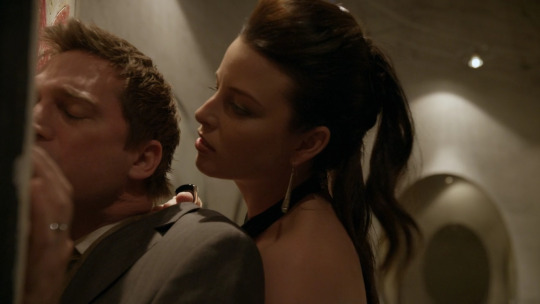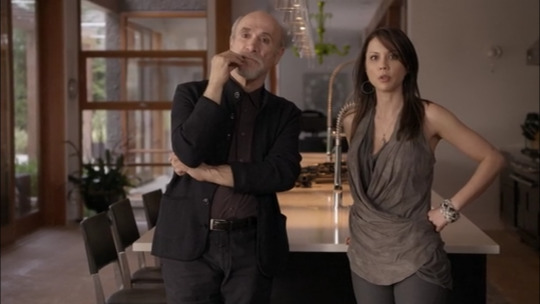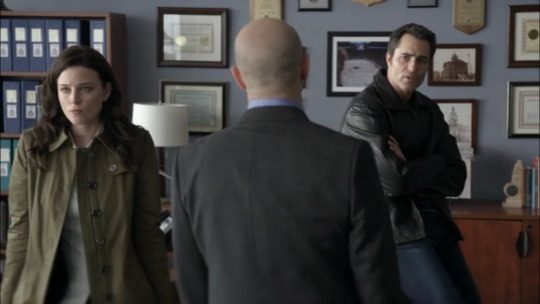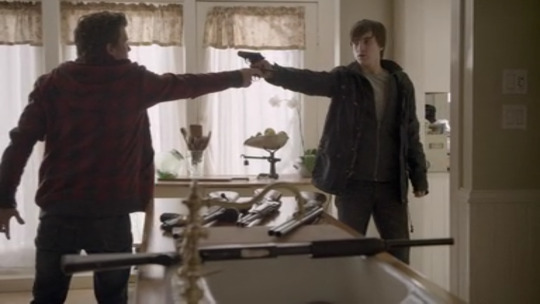#but then I needed to create some for narrative necessity and i was like eh this might as well happen
Text
When I first started in fandom, for whatever reason I decided making fankids was like… too cringe for me. Like that was the arbitrary line I drew of what was too deep into fandom for me.
Anyway, think of this when I post my fankid drawings later because they represent me surrendering what is left of my dignity and fully surrendering to the cringe.
#honestly a lot of this was just that my early fandom experience was being surrounded by people who were ONLY into their fankids#to the point where they barely cared about the canon characters or killed them off entirely#and I felt like then what even is the point of being here if you're like that?#and no judgement if you're OC obsessed it's just like I have a whole back catalog of original characters so I personally didn't Get It#but then I needed to create some for narrative necessity and i was like eh this might as well happen#but you'll notice even my fankid stuff is still fully from the pov of the canon characters bc they are the ones I care about most#but I understand the OC / fankid thing better now in that it's training wheels for a lot of people#and it's great a great way to test drive until you're ready to create a character from scratch#or for people who have no interest in making content to contribute to the fandom space by commissioning art of their little guys#or to play in the fandom space without the confines of canon by making it their own#so be cringe and free everyone and have fun#though I will forever think about the time someone joined one of the non-fandom writing servers#and asked why we didn't have a channel to talk about OCs#and we had to gently explain that we were all writing original fiction all of every single one of our characters were 'OCs'#fandom is really a different world sometimes
11 notes
·
View notes
Note
Hi! You've talked about Brother Blood a lot so I was hoping you'd know. I saw a post where some people were saying that Dick being brainwashed was a retcon done just to make him look less jerky. Is that true?
Eh, yes and no?
Like it depends on what you consider a retcon to be, I guess. If you view any story moment that contradicts or alters a previous one to be a retcon, then yeah, I suppose you could call it that. Personally though, I consider retcons to be later additions to a story or continuity that create a REPLACEMENT for an earlier story moment, that people are meant to refer back to from then on. Dick's brainwashing, to me, was simply a reveal. It altered the way his previous behavior was viewed, but it was deliberately led up to, like that WAS the story.
Now, to be fair, the specific way the brainwashing was explained, it made things ambiguous enough that you could make USE of the brainwashing to excuse or explain away pretty much anything you didn't like about his behavior between the first Church of Blood story (when Dick was still Robin) and this one. So I suppose in that respect, it is a retcon.
But what makes me scrunchy faced when most people write off or ignore the brainwashing as a retcon (and why is it that people are so willing to accept SOME retcons but not others, I would really like to know, like 'but it was a retcon' seems to come up ANNOYINGLY often in Dick's narratives in particular, with that line being used to try and invalidate Dick being fired, Robin being his mother's name for him, that he was brainwashed in the Church of Blood stories, etc. Yeah they were retcons, but so were eighty million other things people just accept. Like.....I'm just saying).
BUT I DIGRESS.
Anyway, what makes me go eh about people going 'oh the brainwashing was just a retcon to make him seem like less of a jerk' because yes, I have heard that argument too.....is that the things people cite as what they feel are examples of the behavior they think this was a retcon FOR, like.....just do not work as such.
Because the big ones are the ways Dick behaved on Tamaran and with Kory's political marriage, and then his fight with Donna upon his return to Earth.
And I just want to point out the timeline involved here:
Dick's big blowup with Kory over her political marriage? Was in New Teen Titans #18. His fight with Donna, was in #19. The reveal of his brainwashing, which led him to lash out due to the mental and emotional turmoil he was in fighting against the conditioning, as Mother Mayhem termed it, was in #22.
That's a span of less than five months from the biggest jerk moment people cite as what was being retconned with the brainwashing....til the brainwashing moment itself. And there's a couple of things to keep in mind here.....first, that comics - especially back in the eighties - take TIME to produce. Even if there had been a huge reader backlash at the time of #18's publication, with readers calling for Dick's head, the idea that this could lead to inserting the entire brainwashing plot setup as a fix-it retcon is dubious if not outright impossible. Issue #22 was on the SHELVES not even five full months after #18's publication. In the 80s, the way comics were produced and published, they needed to be completely finished and shipped off to retailers a couple months before their on-shelf date, and it took weeks to print everything, and the lettering and inking and every step of the creation of each issue was done by hand.....
How exactly, do people propose that DC even had TIME to note any sizable need to correct or fix Dick's behavior in something like #18....and actually DO so by #22?
Not to mention, every issue in between them lays another brick into place on the road to REVEALING that Dick was brainwashed this whole time.....because in #19, when he had that big fight with Donna, he was actively shown questioning himself on his OWN behavior after the fight was over. Asking himself why he said the things he did, like....he was second-guessing his own behavior, which I don't see how that could have possibly been put in to lay groundwork for a retcon AFTER #18 was published....because #19 and #20 likely should have been already completed and off to the printers by the time #18 even hit stands.
And then AFTER #19, in #20 and #21, we saw Dick actively infiltrating the Church, or THINKING that was what he was doing, even though the Church was on to him the whole time, because his conditioning was actually just....directing him to basically walk right back into their clutches. Again, works as set up for the REVEAL that he was brainwashed, but impossible to have put into place to enable a RETCON.
So no matter how you look at it, even IF the decision to introduce a brainwashing retcon to 'fix' some of Dick's behavior had been made due to story elements from BEFORE #18.....
The events of #18 themselves, as well as #19-#22......still do not work as things that are just conveniently retconned by the brainwashing.....they have to have been written with the specific intention in mind of laying groundwork for the idea that Dick was 'lashing out due to his mental struggle against his conditioning.'
The timing just does not work for them to be anything else.
So it doesn't work for me at all, to cite those issues as things retconned by the brainwashing reveal, when HOW Dick acted on Tamaran, plus his fight with Donna, were very clearly written as DELIBERATE moments where he was behaving in a way that can literally be described as out of character, because they were meant to post-reveal, be viewed as examples of how he wasn't himself, how his mental and emotional state themselves were being impacted by external influences. (Not just in terms of external events but like, external mental conditioning).
And I just don't think it works to use moments that are written WITHIN a narrative to be DELIBERATELY out of character.....as examples of his characterization or proof of the necessity of a retcon for his character, lol. That makes no sense to me.
And lastly, I also have to point to the fact that like......good old Marv is not actually the most aware guy out there? And I question the idea that just because people TODAY may look at various things Dick said or did in stories leading up to the reveal and think oh yeah, of course they'd want to course correct that.....I don't exactly think that means that back in the 80s, Wolfman viewed those same things as even NEEDING a retcon to correct. Especially when you consider things the other characters around Dick were doing, without any kind of retcon for their worst behavior? Why would it be only Dick that he saw a need to retcon his behavior or actions, especially when Dick's worst ones literally ONLY happen in the actual narrative buildup to the brainwashing reveal, mere months before the issue revealing it hit the stands?
*Shrugs* Anyway, YMMV, but to me its always clearly read as all of that was just a story where writing Dick acting increasingly out of character in ways that isolated him from his closest friends and allies so there was no one around TO stop him from walking himself right back into the Church's grasp....like, that was pretty clearly the POINT of that entire narrative, and the literal reason those fights he had even happened.
Writing it off as a retcon just to me seems an unnecessary tangle that doesn't serve any real purpose and complicates things needlessly. All it accomplishes is more of the usual 'oh Dick's not so great, look at THIS stuff he did, and how DC did this and this to make all that go away.'
Like.....DC doesn't even see a need to retcon away BRUCE'S worst behavior - then as much as now - and if they don't do it for BATMAN why are people so sure they're invested in doing it for Dick Grayson?
Sometimes a story reveal is just a story reveal, if you ask me. Which you did. So yeah. That's my answer. Nah, it wasn't actually a retcon, it was a planned plot twist.
Edit: Actually one last thing to point out -
Wolfman wrote brainwashing and possession storylines all the time. ALL THE TIME. Like, he LOVES that shit. 99% of those other ones don’t seem to have ‘need to retcon this character’s behavior’ as a reason for them being written, so why does this particular storyline need a reason for existing beyond ‘Wolfman wanted to write a brainwashing story. Again.’
38 notes
·
View notes
Note
Hi! I'm piggybacking one of your posts about Chuck, sorry. So you think about Thought-Box as some sort of 14x15 scenario? When I rewatched the episode I thought it would fit Chuck's seek for a perfect narrative. So Sunny, the son (the sun?) would be the one to do it. Am I close?
Yes this.
Again, I do gesture vaguely over the sum of my written work (and do hope you at least read the heaven post I linked x ) but I’ll see if I can’t break this down from other angles, since everyone seems to find a way to grasp this differently.
Have you ever watched the Matrix, Nonnie? Or maybe late seasons of Agents of Shield when they went into the Framework?
See, in the Matrix, humans created machines, but machines overthrew them. Humans don’t realize this though, because the current generation has lived in the Matrix their entire lives. They are the “cells” (as opposed to souls) that power the machine that the machines actually require to survive. The matrix itself is powered on human energy of these cell-souls. The machines try over and over again to keep people distracted. In fact, according to The Architect, there were multiple matrixes. The first was perfect, sublime, matched only in its perfection by the level of catastrophic failure in keeping men contained.
Men know no other world than this Matrix. They fear coming unplugged and looking at the world beyond it.
The heaven meta attempts to map out what the world beyond really is, and where man’s rightful place is.
Think of what Michael did to keep Dean placated: If I wanted to keep [Humanity] placated, I would give it contentment.
Dean’s contentment wasn’t some perfect memory. Needed the occasional monster to bust in and stay lively. “If you want to fight leviathans, cool, you got that. You want to fight the british men of letters. Eh little weak but okay.”
He built the sandbox, we play in it.
Jack’s heaven even had enough physics for Dumah to detect how long he was gone by his burger going cold.
Think outside of time being a necessity: every human theoretically has a heaven, basically. These are thought boxes where they relive their greatest hits, but in no particular order, as time does not exist. It is a given right, really. The memories come from earth, a different thought-box, and one Chuck installed a swiss watch to tick tick tick on; clocks stop when a reaper comes to collect, and if a spirit can’t let go and can’t go on it becomes confused, angry or even violent watching that world tick on without it, without truly returning to its place.
That eternal mind in reflection of the soul which ventures through the body of the earth--that place is always and already and forever there.
The flaw in this is the angels patrolling to keep people in specific boxes rather than letting them share an eternity. But angels doing so keep men placated, distracted, divided. They may not consciously even be doing this, but summarily, it removes god’s superior from the picture.
So like in my heaven meta, and a thousand questions before, I ask what makes Chuck’s thought box more real than anyone else’s? People. Families. We are. That’s real. Everything else is commentary. Remove humans from the matrix he designed or remove his control from it (let someone else sustain the thought if you will), and suddenly, he’s nothing, and man is his own god, unrivaled in the universe.
So yes, Peace of Mind! That’s one of the many many MANY ways they have been mapping this out. “In this place, I’m God!” the mayor declared. Given his was more forceful, literally forcing people in a different way, but the analogy remains the same. Think closer though to Dean’s headbar, or Castiel in the mental kitchen under Lucifer, Sam studying with books under Gadreel. Take that idea and poke that heaven meta a few times then let your brain melt. But you’re definitely on the right track.
10 notes
·
View notes
Text
Continuum season one full review

How many episodes pass the Bechdel test?
80% (eight of ten)
What is the average percentage per episode of female characters with names and lines?
30.6%
How many episodes have a cast that is at least 40% female?
One, episode 1.05, “A Test of Time” (41.18%)
How many episodes have a cast that is less than 20% female?
Zero.
How many female characters (with names and lines) are there?
Twenty-two. Seven who appear in more than one episode, five who appear in at least half the episodes, and one who appears in every episode.
How many male characters (with names and lines) are there?
Forty-four. Fifteen who appear in more than one episode, eleven who appear in at least half the episodes, and three who appear in every episode.
Positive Content Status:
Perfectly average, with nothing terrible, but nothing of note, either. (average rating of 3.0)
General Season Quality:
Solid. It attempts to merge police procedural element with a more serialized narrative, and generally succeeds at both. It is also clearly a series that realizes the potential of its premise and is interested in exploring it in depth.
MORE INFO (and potential spoilers) under the cut:

Let’s talk about heroes.
Heroism, in stories set in versions of Earth that are meant to resemble ours—see: the MCU, Supergirl, Buffy the Vampire Slayer, earthbound Doctor Who stories not set in the future—tends to be associated with maintaining the status quo. As disruptive as heroes often are by nature and necessity, they generally don’t work to change things for the better in a general way, but rather, to ensure things don’t get worse. Society, by implication, becomes “good enough”—something worth keeping around as is. This tendency is occasionally questioned—not surprising, given all the ways the status quo isn’t actually good for many people—but the story’s internal rules mean that the conclusion is often a half-hearted “eh, what other option is there?” with the occasional “but that way lies tyranny!” While this stance isn’t entirely without reason, it’s also often frustrating. Inaction and tyranny aren’t the only choices, so why pretend that they are?
This right here is one of the main reasons why I really appreciate Continuum, and why I would probably do so even if the show weren’t as consistently solid as it is. It is a show entirely built around the idea that the status quo is untenable, and that trying to keep things as they are can only bring about the destruction of the human race at the hands of the 1%. While it’s far from the only series with a social conscience, it is one of the very few to declare that what is needed is massive, widespread and disruptive social change. That it does so while also being a police procedural, a genre that tends to be almost inextricably tied to conservative politics and an affinity for the status quo, is all the more impressive.
I’m fascinated by stories about people vs. the future—it’s the absolute impossibility of the struggle that gets me. I mean, how do you fight change? Sarah Connors’ battle wasn’t just about deadly people-killing robots; it was a fight against progress, a refusal to acknowledge that humans will continue to advance technologically no matter what you do, and “winning,” in those terms, meant undoing the previous fifty years of existence. Team Machine’s battle against Samaritan hit the same points: in the end, if didn’t matter whether one particular artificial super-intelligence was atomized, because another would take its place—maybe not soon but eventually.

While Liber8’s struggle has some similarities to these fights, it is, in the end, fundamentally different. The Corporate Congress and the mass demotion of actual people to second-class citizens isn’t inevitable the way the advent of artificial super-intelligences is. There’s no reason why humanity can’t continue progressing technologically AND choose not to bring back indentured servitude. If the terrible future happens, it’s not because the arc of humanity inevitably bends towards corporate dystopia, but because the people in positions to change things…didn’t. Also, while artificial super-intelligences are still years away, Continuum’s apocalyptic future isn’t really the future at all. Corporations aren’t going to wait fifty years before they choose to actively reduce people’s freedoms in order to obtain ever greater profits; it’s what they’re doing at this very moment. Liber8’s battle is much more urgent and immediate, and that ups the difficulty level of the storytelling immeasurably—it would have been very easy for the series to fuck it all up.
Fortunately, Continuum, for the most part, hasn’t. It’s not perfect—its theory of oppression largely ignores the role of marginalized identities, and how these shape the way oppression is performed and perceived (and no, making most of Liber8’s members people of color isn’t enough to address this)—but the series’ heart and storytelling instincts appear to be where they need to be. They actually care about the issues at play, and that’s mostly evidenced in the fact that it treats Liber8’s fight as legitimate. It could have been the easiest thing in the world for Continuum to be the story of cop vs. terrorists FROM THE FUTURE!, and for Liber8’s motives to be nothing more than the motivation to get the story going, or a cover for more traditional nefariousness. Instead, it is the whole point. Continuum is a series about getting from point A to point B, and about just how complicated things can get.
Speaking of complicated: Kiera Cameron.

While Kiera is very much a genre show protagonist—Continuum is very much a genre show—she actually reminds me more of a character from an entirely different sort of story—The Good Wife’s Alicia Florrick. This is a good thing, since Alicia is one of the best protagonists on television and I love her for many of the reasons I love Kiera. I love that she’s an introvert who doesn’t make friends easily. I like that she likes systems, and feels most comfortable inside them. I like that she is fundamentally selfish. I like that neither she nor the series is exactly concerned about her being approachable or cool. Perhaps most importantly, I like that while the series is never short of sympathy for her, it is also very clear that her goal is completely incompatible with the good future.
Unfortunately, none of the show’s other female characters manage to equal Kiera, or even come close. While there’s no glaring missteps I can identify in the show’s female representation—aside from the usual ones—there’s no real revelations, either: Sonya, Garza, and Betty, are, for the moment, just alright. Somewhat ironically, the one-shot female characters do better than the more promising ones, in part because they’re more numerous and varied, and in part because the series can’t afford to punt their development to a future date. While this feels like the result of circumstance rather than intention—with so much to cover and so little time to do so, something had to give—that’s really just an excuse. There’s no reason why the characters who got prioritized this season had to mostly be men.

If there is something noteworthy in the way Continuum approaches gender, it is in Kiera’s relationship with Carlos, which is my favorite dynamic in the show. While I tend to look askance at calls for more purely platonic relationships between sexually compatible characters—I’m not often confident they’re made in good faith—I do like the idea in theory, and this relationship is an excellent proof of concept. Kiera and Carlos could get together. There’s tons of evidence that they’re compatible, and he’s a better person than Kellogg or—ugh!—Alec. Heck, there’s absolutely no evidence here that they aren’t going to get together in the future. But it’s not happening now, and neither the characters or the show think there’s anything wrong with that or that it makes their relationship somehow lesser. It isn’t that romance isn’t important or it’s incompatible with depth or great storytelling and character development; the elements of the relationship that I like— push and pull, between people who disagree on a lot but respect each other and are more than willing to meet each other halfway—could easily still be there if they were together. It’s just that sometimes, it doesn’t need to be there.
(I’m team Kiera / no one, myself.)
Kiera’s relationship with Alec, meanwhile, is not nearly as compelling, in large part because Alec is the element of the show that least works. I understand his place in the narrative, and I can totally see how a character like him would end up eventually helping create the corporate dystopia, but this doesn’t make the present-day version of the character and his immaturity any easier to take (his future self is fine). He’s not intolerable, and I like the family drama that surrounds him—the best episode of the season is all about the Saddlers and Randols—but he’s also not great, and given just how many characters and concepts are fighting for attention, that’s something the series can’t afford.

To mix metaphors, Continuum is a high-wire act, juggling so many balls that it is in constant danger of collapse. There’s a let’s-prevent-the-terrible-future time travel narrative, with all the usual complications of time travel stories. There’s a good half-dozen fish-out-of-water narratives. There’s a traditional police procedural, except that it also involves future technology. There’s an exploration of class warfare and capitalism, and the evolving roles of activism and terrorism within it. There’s family drama. Taken together, it’s arguably more than can be properly explored in ten episodes, and that the series did as well as it did is genuinely surprising. While I’m not sure it can keep up the balancing act indefinitely as it continues, I’m interested in seeing how long it lasts.
6 notes
·
View notes
Text
Interview: Listen to Kasabian's sixth album 'For Crying Out Loud,' Serge Pizzorno tells us why
Every album bar one, of Leicester band Kasabian has reached Number One on the UK album charts. In 2014, they also won Best Album and Best Band at NME’s 2014 awards, and that summer proved themselves worthy Glastonbury headliners. Their sixth album, released earlier this year, knocked Ed Sheeran off his perch and has been deemed their best yet, so why aren’t they bigger here?
Could it be their creepy moniker with its associations to a member of the Manson gang? Perhaps it’s the fact that each album tries to shape-shift from the one before, making it hard to peg them? Or is it because British lad and larger swagger; the cornerstone of their music, doesn't always translate out of the pub and across the pond?
Maybe it’s as simple as we just haven’t heard the songs? In 2014 they did a nominal 9-city tour and the album 48:13 hadn’t been released when they were on the road here. Prior to that, they had been absent for five years*. Their then record label's reluctance meant that albums from that period – Velociraptor and West Ryder Pauper Lunatic Asylum weren’t even released in America. And the band are hardly heard on radio.
But if ever there was a time to give Kasabian a try, For Crying Out Loud, their latest, serves as an excellent entry into their oeuvre. It includes electro-banger, "Ill Ray;" the feel good vibes and modern psychedelia of "You're In Love With a Psycho;" "Good Fight" a perfectly structured pop song where they discuss feelings (very unusual for lad rock); and even a love song "Put Your Life On It."
The album was written in six weeks. A self-imposed deadline by songwriter, co-vocalist and guitarist Serge Pizzorno, in an effort to do things radically different from 48:13; which delivered the thumping and addictive "eez-eh" but took a year and was laden with experimental interludes, electronic loops and bleeps.
For Crying Out Loud is largely guitar-based, with an electro-indie sound that marked their first ascent in 2004 with the likes of other guitar bands such as Arctic Monkeys and The Libertines. Songs were written mostly on Pizzorno’s Rickenbacker before it was taken to the rest of the band which includes Tom Meighan, Chris Edwards, Ian Matthews and Tim Carter.
We speak to Pizzorno ahead of their Bay Area show this Sunday, Sept. 24 at the Regency Ballroom, to find out about why he thinks we should check out their latest album. And after 20 years why he doesn’t care if detractors don’t appreciate his lyrical skills.
AXS: You set a task for yourself to write an album in six weeks – within that what other guidelines were there – like, you must talk about feelings? Or that you should try and take the Berry Gordy Motown approach?
Serge Pizzorno: Yes, I was really strict because at the time, I was really into pop structure. The art form of songwriting, of writing a truly great song. Experimentation has always been my go to: messing about with form and changing things up. This album was the opposite: nothing could be longer than three and a half minutes, I could only use the guitar to write and it had to be written quickly. It was just to see what that would feel like. It happened really quickly, then we recorded it and put it out.
AXS: One of the other guidelines, I read was writing in 9 to 5 shifts rather than late at night? Was that out of necessity cause you have kids or was it to see what kind of a different color you might get?
SP: Exactly that. I found it really productive though because it made me appreciate my time in the studio. I tended to get loads done and the next day I couldn't wait to get back in. I was shocked because in my head I was adamant, "like I can write what I want, when I want." Obviously, when I set out to do this I didn't know that it would work. I am very reactionary so if you ask me now, how I will write the next one, I'll probably say I'm going back to Jamaica for a holiday and to the spend some time there writing. You know for that complete change of scenery again and see what gets written.
AXS: You’ve said For Crying Out Loud is the best record you’ve ever made – why? Don’t bands say that after every new record? Critics have said their fair share but in your opinion, what sets this one apart?
SP: I didn't say that. Tom said it.
AXS: Oh that Tom!
SP: Yes exactly. (laughs) I wouldn't have called it our best record. I don't like to think like that. It does have a sort of Punk, street-disco theme. Seventies are a big influence but here, it's been put through modern filters.
AXS: Last time, you came to America for a very short tour. Before that you hadn’t been here for 5 years*, do you still feel America is worth another shot?
SP: We love touring and we love America so we will always tour here. But we're not 18 anymore, and not able to just jump in a van and play live shows for six months. It just doesn't suit my personality. Being on the road is for adventure, gathering information and allowing yourself to be influenced by what you see. Then you take it home and make stuff out of it. I need to create and I can't do that if we're constantly on the road. My time's better spent elsewhere. But like our gig last night in New York, it was insane and we all looked at each other and said: "I wonder, what's happened?" I mean if the gig is crap, you can understand but it wasn't. It was really good. I'm scared now, all the other gigs have a high bar to reach.
AXS: Why should Americans listen to “For Crying Out Loud,” apart from the fact that we might get a history lesson with “Ill Ray” (the video is based on the finding of King Richard III's bones in a Leicester parking lot)?
SP: (laughs) That's right. It's pure feel good music; there's not many albums like that being made at the moment. It's pretty hard to write. I think it's very easy for artist to fall back on pain and write music from there. It's such a mad time all around the world, For Crying Out Loud is positive, makes you want to dance, or go out and do something by the end of it. I don't know... I would never go too deep in trying to sell an album to anyone, I believe everyone should listen to whoever they want; do whatever you want. But if you want a record that is uplifting and has an amazing energy, this is it!
AXS: Speaking of that track – the video is very interesting, could you tell us about the idea behind it?
SP: I received a load of treatments and they were all terrible. I was on holiday, and I thought: "I best come up with an idea." So in the cab ride with my kids from the hotel to the airport, I wrote the treatment; scene by scene, on my phone. Then I have a friend who's a director (Dan Cardan), and it just so happens, his girlfriend is Lena Headey (Queen Cersei from Game of Thrones); obviously writing a queen in there, I don't think that could be any better queen in the world right at this moment. And that carpark where King Richard III's bones was exhumed, it's such an iconic scene from my hometown.
AXS: Crazy food references, the UK press seem to give you a hard time with “I’m like the taste of macaroni on a seafood stick.” There’s a kookiness to it that matches the mood in “You’re In Love With A Psycho” but perhaps it isn’t as elegant as an Alex Turner turn-of-phrase. But why do you do it? Just for a laugh, to goad those critics? Or it just makes sense to you?
SP: Everything is done to piss people off, let's face it. (Laughs) But that line made me laugh, first and foremost, there is always humor behind our songs. And secondly, there's always people that would just get the joke, those with that surrealist humor; it's too tempting not to write lyrics like that. It's a booby trap: if you don't get it, it's like "see you mate." They're my favorite lines in every song. What's annoying is that critics tend to just concentrate on that and miss all the other nuggets of beauty like quoting Charles Bukowski in a pop song. It's something to be celebrated but they won't mention that because it doesn't fit in with the narrative they have written about you: "Now, we perceive you as hooligans so you can't be possibly clever." Well, there's more to it than that.
AXS: One of my favorite songs on the album is “Good Fight” it has an almost doo-wop feel and is so uplifting – can you tell us a little bit about your inspiration for the song?
SP: Just came from a loop, the beat of an old Motown flow. I was also thinking about Nirvana Unplugged and the chorus from "Spiders From Mars." And the song wrote itself really.
Kasabian Tour
Sept. 23—Los Angeles, CA—The Wiltern
Sept. 24—San Francisco, CA—The Regency Ballroom
www.axs.com
__________
*2 years
10 notes
·
View notes